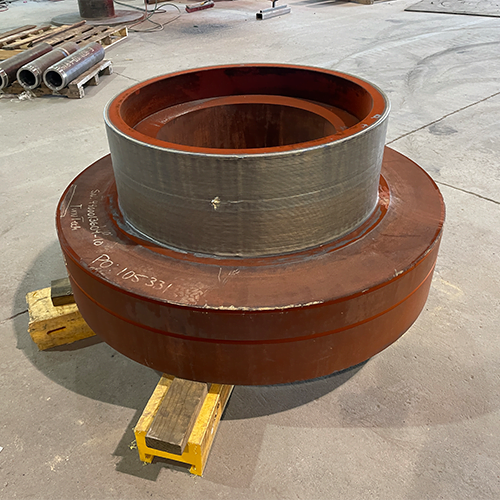PWHT / Stress Relieving

PWHT’s reduce residual stresses in weldments. PWHT’s change and improve the microstructures of materials. PWHT minimizes the risk of cracking and ensures improved overall structural integrity, making it an essential step for critical components requiring uncompromised performance. Improve the metallurgical integrity of your welded components with Superior Cladding’s PWHT (Post Weld Heat Treatment) / Stress Relief services. Our PWHT’s are ASME Section 8 compliant with thermocouple control. We can optimize PWHT’s to tailor material properties.
Our PWHT equipment is calibrated and surveyed to API 6A. Whenever a PWHT is performed, we provide our customers with traceability and chart records. We can provide digital or analog logs, depending on customer requirements. We have two furnaces, one 110” car bottom furnace and a second, smaller, 50” furnace. Superior cladding can also localize PWHT parts with a miller Proheat 35, an induction heater that uses flexible coils.
In the industries we serve, most alloy steels get PWHT’d. These include materials like 8630, 4130, F22, 9Cr, F11 and similar. Carbon steels are typically not PWHT’d due to material properties. Most parts that are cladded inconel 625 require a PWHT for the base metal itself, rather than the overlay. However, a PWHT can increase the hardness of welded nickel alloys, and this can be advantageous for metal-to-metal seals that scratch after a single use. Most PWHT’s fall within the 1150F-1250F range, with times as short as 2 hours and as high as 32 hours accumulated.
